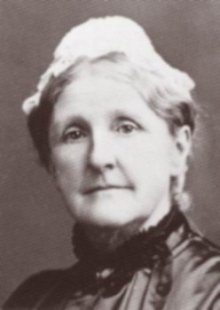I can’t tell you how many times I have heard someone say, “Really, there’s nothing else we can do. We’re just going to have to trust God.” I’ve said the same thing, myself.
We say that like it’s a last resort, like trusting God is some sort of consolation prize for folks who aren’t strong enough, or clever enough, or well-connected enough to get the job done. Honestly, though, trusting God isn’t just part of our job. It is our job. It marks the beginning, the middle, and the end of every good endeavor.
Sure, we all have stuff to do – works that God has “prepared in advance” – but, at the end of the day, he’s the one who is responsible for outcomes and accomplishments. It doesn’t matter whether the task at hand is monumental or minuscule, if something lines up with God’s good plan, he will get it done. We may pat ourselves on the back, but the credit ultimately belongs to him because, after all, he is the one who works in us to “will and to act according to his good purpose.” (Philippians 2:13) Or, as Isaiah puts it, “We are the clay, you are the potter; we are all the work of your hand.” (Isaiah 64:8)
For many of us, though, putting our lives into God’s hands and trusting him with the results can present a bit of a problem. Who knows what the Potter might have in mind? What if we wanted to be a statuesque vase and, in God’s skillful hands, we start to resemble a cereal bowl? I have a whole collection of questionably shaped artifacts from the happy hours my kids spent in art class; what if my life turns out looking like that upside-down turtle shell?

“A great many Christians seem practically to think that all their Father in heaven wants is a chance to make them miserable and take away all their blessings,” writes one of my favorite vintage authors, Hannah Whitall Smith. It’s true. All too often we think of God as Someone who has a long list of holy-sounding things that we are supposed to do, and an even longer list of fun-sounding things that we aren’t. If we decide to trust him (that is, if we wholeheartedly surrender ourselves – our dreams and our goals, our reputations and our relationships, our work and our play) and say not, “My will be done” but “Thy will be done,” we worry that we’re gonna miss out on the good stuff.
But here’s what Hannah has to say about that:
“Some of us know what it is to love, and we know that could we only have our way, our beloved ones would be overwhelmed with blessings. All that is good and sweet and lovely in life would be poured out upon them from our lavish hands, had we but the power to carry out our will for them. And if this is the way of love with us, how much more it must be so with God, who is love itself! Could we but for one moment get a glimpse into the mighty depths of His love, our hearts would spring out to meet His will and embrace it as our richest treasure; and we would abandon ourselves to it with and enthusiasm of gratitude and joy, that such a wondrous privilege could be ours.”
Could we but for one moment get a glimpse into the mighty depths of His love, our hearts would spring out to meet His will and embrace it as our richest treasure.
Isn’t that an awesome sentence? It’s from Hannah’s book, The Christian’s Secret of a Happy Life, which I recommended in a blog earlier this summer. Her theology reminds me of what Tim Keller wrote in his book, Prayer. He says, “We have the assurance that God, our heavenly Father, always wants the best for his children.” What’s more, Keller writes, you can trust that the Holy Spirit will help shape your prayers (Romans 8:26) and you can “come before God with the confidence that he is going to give you what you would have asked for if you knew everything he knows.”
I think that’s pretty cool.
And I’ve been asking God for a lot this summer, as loved ones wrestle with health issues, career moves, relationship challenges, and a whole host of unmet longings. Thanks to Hannah (and also to Keller), I am praying specifically about what I would like to see happen – and then letting God answer according to his best plan. “Thy will be done” is not the prayer warrior’s way of throwing in the towel; rather, it is an acknowledgment that we are incredibly, lavishly loved by a Father who always does immeasurably more than anything we could imagine. It is a recognition that, even though we might not understand God’s ways, we can trust his heart. And it is a signal that we are doing our job – and that we are depending on God to do his.
“You will keep in perfect peace him whose mind is steadfast, because he trusts in you.” (Isaiah 26:3)
Ω
And P.S. if you are wondering why I call Hannah “Hannah” and Keller “Keller,” it’s because I feel like I know Hannah. You know how that is, with some celebrities or authors you admire? You feel like, if you could only have lunch or go on a run with her, you would be good friends. That’s how I feel about Hannah Whitall Smith. Anybody who has four of their seven children die before reaching adulthood, marries a Christian guy who repeatedly cheats on her, gets arthritis so bad that she winds up in a wheelchair, and then publishes a book called The Christian’s Secret of a Happy Life is somebody I want to know.

Hannah Whitall Smith (1832-1911)














